For the first time in history, in 2022, French cinema registered more debut films directed by women than by men (the percentage drops sharply when we talk about the third film). Anaïs Volpé could be one of these newcomers, were it not for the fact that she has a previous feature film, the little-known Heis: Chroniques (2017). In any case, regardless of the director’s genre, or whether it is her first or second film, what matters is that The Braves is a brilliant, rabidly contemporary marvel which, in addition to its limited theatrical release, can also be seen online in some countries until 13 February at the My French Film Festival, organised by Unifrance.
So to summarize, although the plot is never the most important thing, it is the story of the unbreakable friendship between two alternative theatre actresses, who face life and death in a thrilling race against the clock. The two of them, Déborah Lukumuena (Divinas) and Souheila Yacoub (Climax), exponents of multicultural France —majority in the streets, minority in the cinema— are as sweeping as this “emotional rave” that takes us to the end of the night, to the rhythm of jazz and electronica (BS signed by David Gubitsch and Elie Mittelmann), to set our hearts on fire.
The electrifying cinematography by Sean Price Williams, which we associate with the Safdie’s films, is reminiscent of a film as great as Good Time, and that is a compliment.
Thank you! I love the Safdies too, and Good Time in particular. That’s where I discovered the work of Sean Price Williams, and that’s why I wanted him to work on my film.
Good Time takes place in one night and The Braves extends over a longer period of time, but it is also a frenetic film that is structured as an escape at the end of the night. I would say it’s something like a “tragic rave”. Do you see it that way too?
That’s exactly what it is. It’s about wanting to live as fully as possible, to make the most of every moment, and here, as in Good Time, it’s also a race against the clock, although for very different reasons. But both films have this rage for life, that’s the way it is. I love Good Time, but I also like Sean Price Williams’ work in other films. Before I contacted him, I watched interviews where he talked about his work, because I like to know what the people I work with are like, what they’re like, what they think. I need to know them as people, because in this film the actors are much more than actors, and the technicians much more than technicians. I need them all to be artists.
Like Good Time or Uncut Gems, The Braves is steeped in that wilder, dirtier, streetwise aspect of 70s cinema, don’t you think? And there’s also an energy that brings to mind John Cassavetes.
Yes, all that cinema influenced me a lot. I love Taxi Driver (Martin Scorsese, 1976). It’s the cinema I like, although I’ve also been influenced, I think, by very different things like Eternal Sunshine of the Spotless Mind (Michel Gondry, 2004) or The Dream Life of Angels (Erick Zonca, 1998). I think the mise-en-scène has more to do with the ideas you have when you write than with the cinema that you like or somehow influences you. Now I’m writing another film and I’m thinking about it in very different terms. For The Braves, if I had studied the shots more, it would have lost all that fury for living that we were talking about. We had to be a bit punk when making the film, to be in tune with what the heroines were going through.
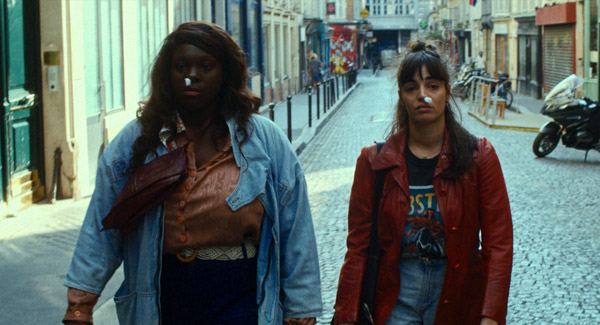
The link with American culture is also in the play they are going to take part in, which is set in a New York represented by a screen at the back of the stage. It’s a very alternative type of theatre, which has nothing to do with the Comédie Française or the Boulevard Theatre, do you know that atmosphere from up close?
Yes, when I was 17 I dropped out of school and came to Paris to do theatre. I learnt when I was a child in what we call a centre aéré, which is like a drop-in centre for children in the summer, where they do activities. It’s a help from the institutions for parents with certain difficulties. When I arrived in Paris, I realised that those who made theatre often also came from the working classes, very different from the public, which is usually more bourgeois. Basically, there is a lot of mixture, and I thought it was interesting to show it, to break with this very bourgeois idea of French theatre. That’s why I also wanted the work in the film to be very lively, not to fall into absurdity or classical theatre.
There’s a lot of jazz in the film, and that’s what happened to jazz too. It comes from the catacombs, from heroin and black people. But it often has a more bourgeois audience, which plays it as background music. French cinema has also traditionally been very bourgeois. In which field do you think it is more difficult to break through, cinema or theatre?
It would be an interesting debate. I would say that in theatre it is more difficult to succeed, to make a name for yourself, but at the same time there is a more supportive spirit, more of a troupe. Both are very difficult worlds. Getting ahead in the artistic world is always very complicated, and when you succeed you become a privileged person.
That screen at the back of the stage is also a bit reminiscent of Warhol’s Factory, isn’t it?
I’m not a fan of the Velvet Underground, but it’s one of the things revered by some very cultured people I met when I came to Paris from Toulouse. My family comes from Corsica and Toulouse. Among the people I met there was a boy older than me with whom I had a great relationship. I had only seen a few blockbusters and read a few plays. I was very lost in café conversations, and I became very bulimic, consuming all kinds of films, books, documentaries, between the ages of 17 and 24. The Factory was part of all that.
How do you make the actresses sound authentic both when they play their characters and when they perform the play that is staged in the film?
They were very afraid of that, and I was also afraid that it would be too theatrical. The actresses have been trained in both film and theatre, and that’s what I was looking for in the casting. I wanted them to be very strong on stage while remaining naturalistic. To be able to be in a theatre in a natural way in front of 800 people watching you is so unnatural that it is rare to achieve it. It was my priority, and I detected it in them immediately. For me they are true virtuosos, they know how to do everything well. They immediately understood what I wanted. Since I also come from the theatre, we spoke the same language. And we understood each other very quickly. You could say that, for them, The Braves is an experience halfway between cinema and theatre, because they do things they wouldn’t do in a film or in a play.
Do you have the feeling that you belong to a new generation, with a different approach to filmmaking?
Yes, I am part of a generation of filmmakers who have come to filmmaking by unusual routes, without going to school, learning to shoot with telephones, and editing at home. More and more of us have started making films with 3,000 euros. Before The Braves, I had already shot several short films, and a feature film, Heis, which ended up becoming a multimedia project, when I had learned to edit by watching YouTube tutorials. I think that, in the same way that I can learn from the highly trained people I’ve collaborated with, like Sean Price Williams, I can also teach them something. There has to be room for everyone. You have to create plural works, in all senses. Different races, different sexes, different social classes, different degrees of professionalism. There is room for everyone.

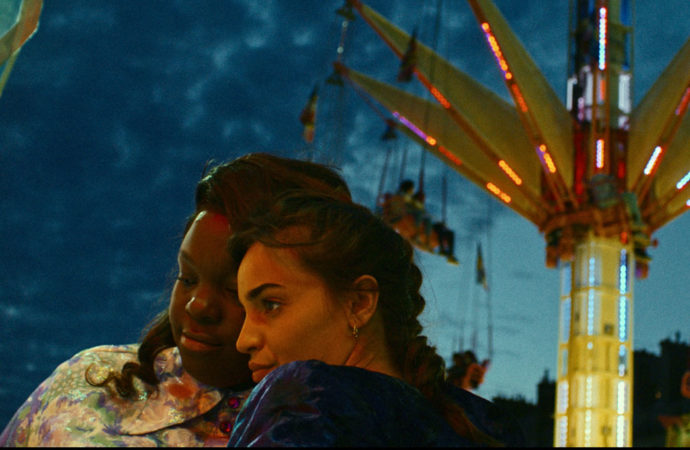
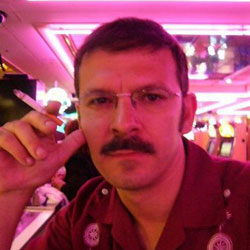

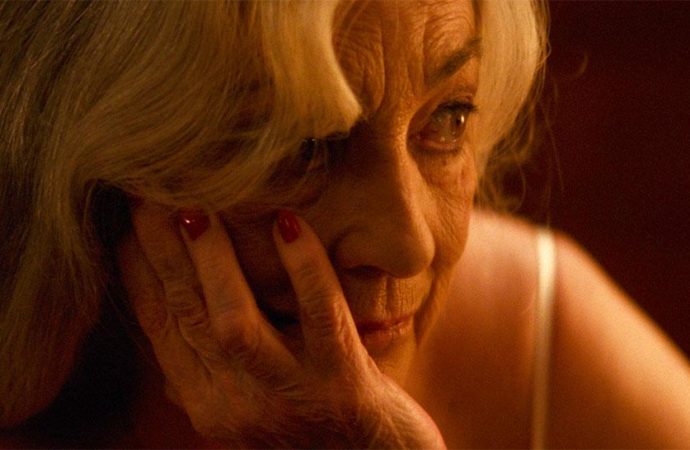
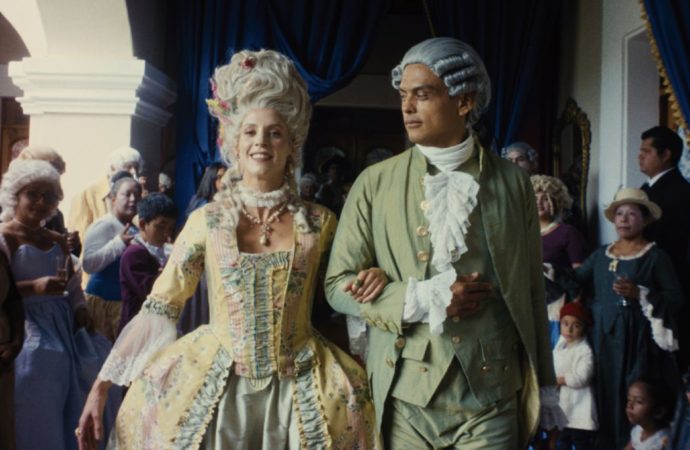


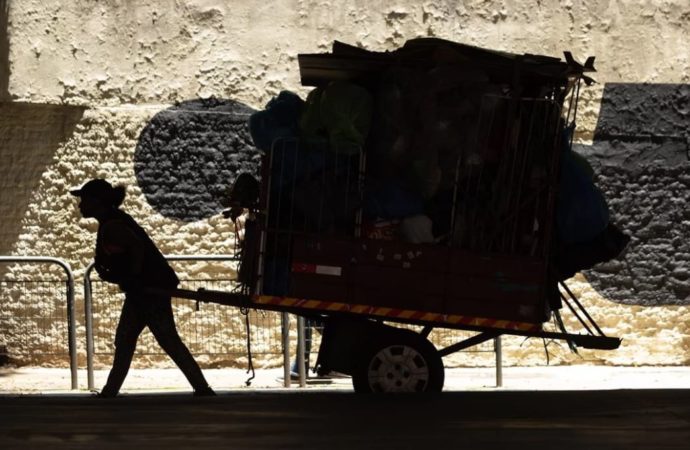
No one has posted any comments yet. Be the first person!